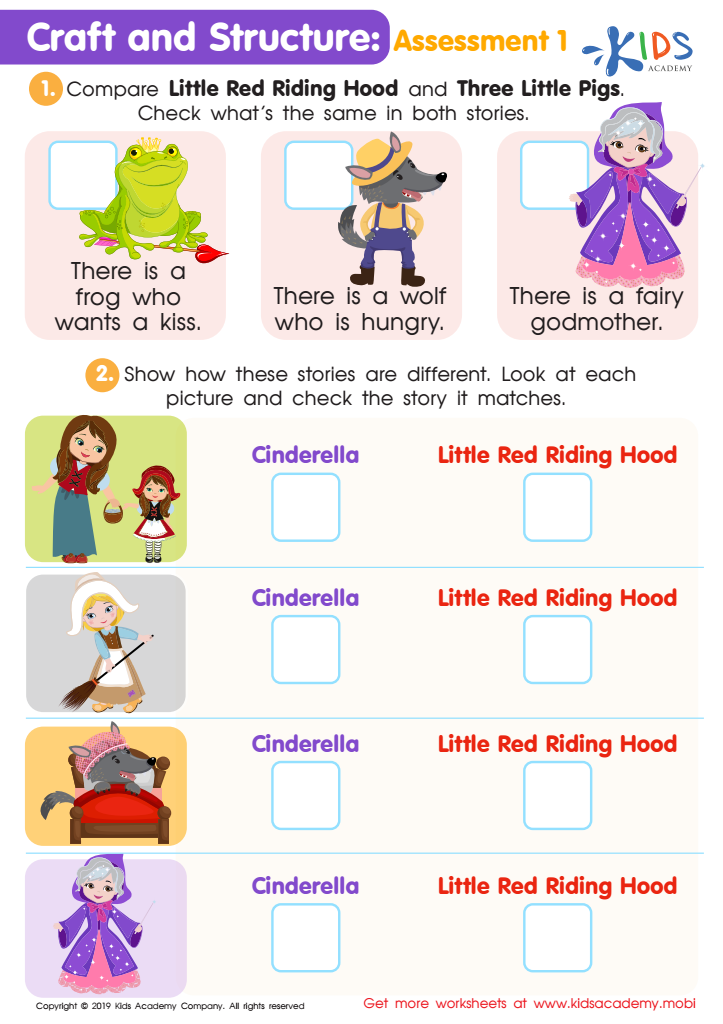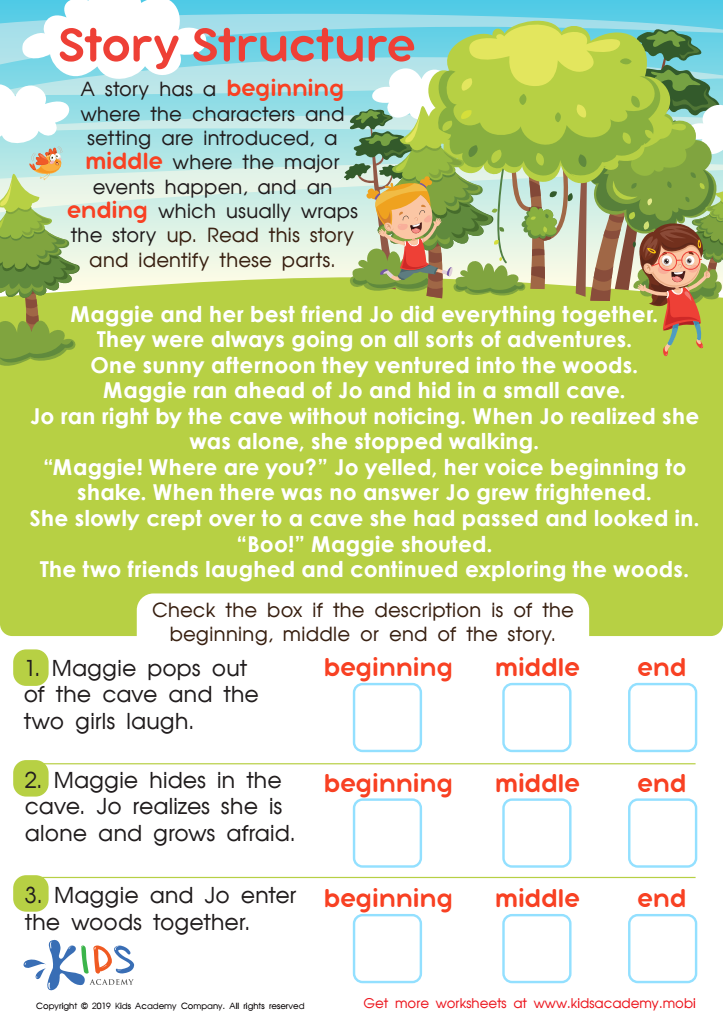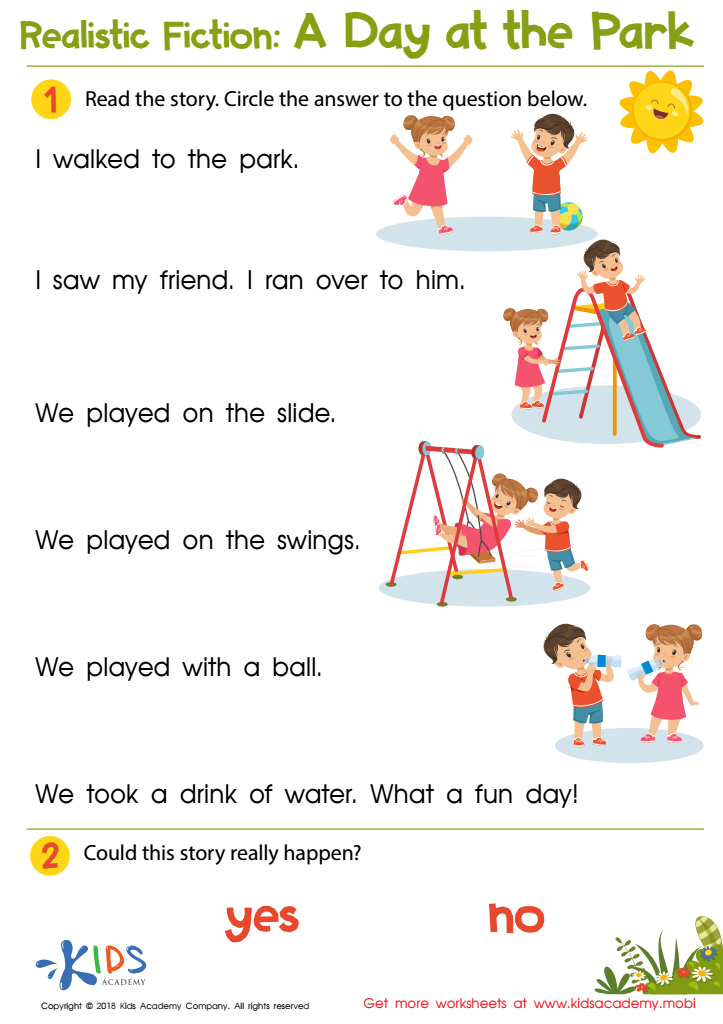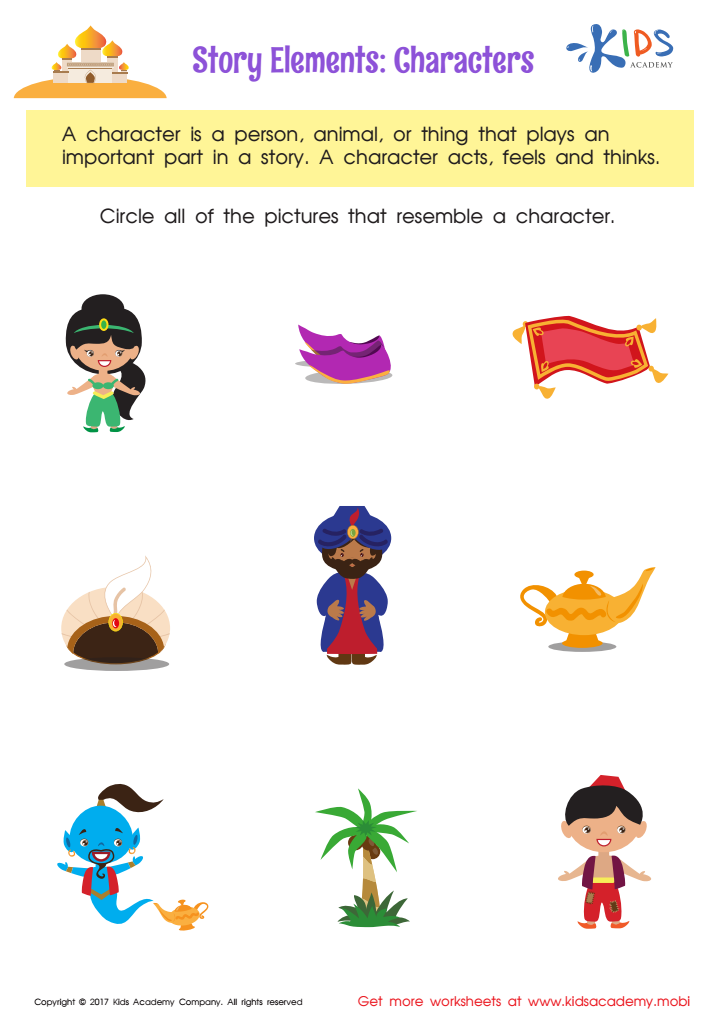Identifying story elements Reading Worksheets for Ages 4-7
4 filtered results
-
From - To
Explore our engaging "Identifying Story Elements Reading Worksheets" designed for young learners aged 4-7! Our thoughtfully crafted worksheets help children recognize key components of stories, such as characters, setting, and plot. By incorporating fun illustrations and interactive activities, kids develop essential reading skills while enhancing their comprehension and critical thinking abilities. Perfect for classroom or home use, these worksheets encourage a love for reading by making learning enjoyable. Whether your child is just starting their reading journey or looking to reinforce their skills, our printable resources provide the support they need to succeed in understanding the magic of storytelling!


Craft and Structure: Assessment 1 Worksheet


Story Structure Worksheet


A Day at the Park Worksheet


Story Elements Printable
Identifying story elements is crucial for children aged 4-7 as it lays the foundation for their reading comprehension and critical thinking skills. Understanding key components like characters, setting, plot, conflict, and resolution enables young readers to grasp the structure of stories, making literary comprehension accessible and fun. This foundation not only enhances their enjoyment of reading but also fosters a love for literature that can last a lifetime.
For parents and teachers, guiding children in recognizing these elements helps develop their vocabulary and communication skills. Identifying characters generates discussions about emotions and motivations, while recognizing the setting cultivates environmental awareness. As children learn to articulate plot and conflict, they improve their storytelling abilities and begin to make predictions, enhancing their engagement and analytical skills.
Moreover, mastering these foundational skills supports academic success, as they transition to more complex texts in future grades. This knowledge empowers children to express their thoughts and feelings through storytelling, building confidence in their abilities. By prioritizing story element identification, parents and teachers can nurture critical readers who not only understand narratives but can also relate literacy skills to their daily lives, fostering lifelong learning and empathy.

 Assign to My Students
Assign to My Students
















